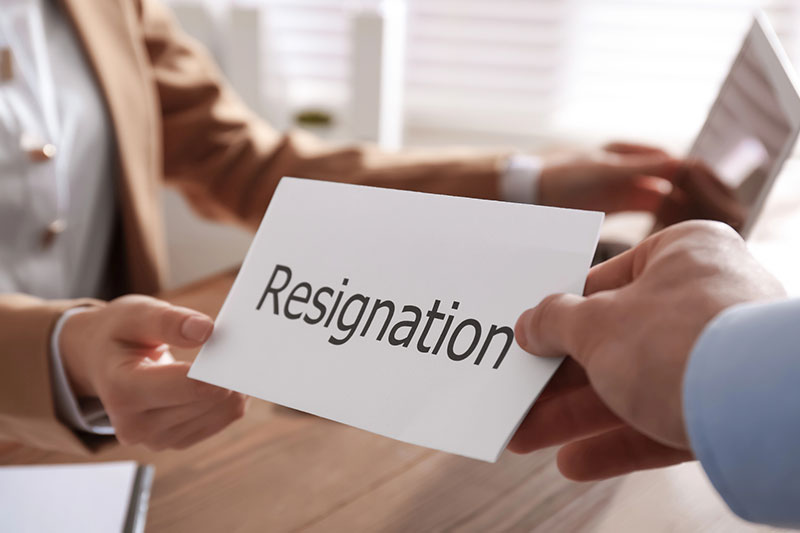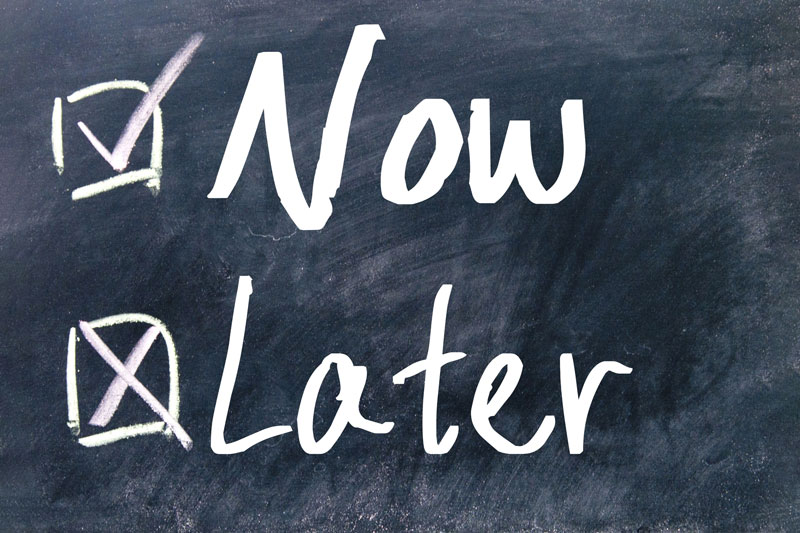Episode #334: The Fee That Patients Are Most Sensitive To When You Resign From Their PPO Plan
Listen Now
As a dentist working towards reducing insurance dependence, you surely have many questions about what will happen once you become a less PPO-dependent practice. This episode is titled after a question dentists often ask Gary!
When you maintain a practice that accepts insurance, the insurance company usually sends the checks to you. The patients that come through insurance companies are familiar with this process, and any change in this process is not popular among them. This could be one of the reasons that stop you in your tracks to reduce insurance dependence.
In this episode, Gary and Naren discuss whether or not the insurance companies will continue to send you the checks, the method to deal with any changes to the usual process successfully, your patients’ reaction to such changes, and how to move past the fear without assuming the worse and not stopping your journey in reducing insurance dependence!
Did you know that marketing your dental practice to your community’s potential patients will help you get an ideal number of patients, and it’s a great way to create a new source of patients right away?
Dental Marketing will not only help you reduce insurance dependence to get new patients and also increase your practice profitability!We are offering a free marketing planning meeting to all our listeners. If you want to learn how to use Dental Marketing in your practice, book your free meeting here based on availability: https://bit.ly/39ZcDcR
Naren: Hello everyone, welcome to the Less Insurance Dependence podcast, the official podcast of the Reducing Insurance Dependence Academy, www.rid.academy. Please consider this an invitation to become a member of RIDA as a gift from us in appreciation of your listenership. This is Naren, your co-host. Today’s topic is ‘Will the insurance company continue to send checks to our office once we are out of network?’ Will the insurance company continue to send checks to our office once we are out of network?
Before we get to today’s topic, I have a quick announcement to make: We just came off one of our best master classes, and that’s the master class on ‘Six steps to reducing insurance dependence,’ and I’m so glad we are announcing our next one, which will be happening on July 27, which is a Wednesday evening, from 7.00 – 10.00 pm Eastern Time and three hours of CE and the topic is ‘The 2.5 million dollar practice model’, The 2.5 million dollar practice model. Gary has helped many, many, many practices build 2.5 million+ practices, and he feels that that’s a sweet spot, a sweet spot for the practice owner. He’s going to get into the nuts and bolts of how to think about it, how do you structure it, and what are some of the things you need to pay attention to if you are interested in one day having a 2.5 million dollar practice. Any comments, Gary?
Gary: Yeah, you know, a good way to think about it, when I think of the master class as a blueprint. Now, let me start by saying there are many different practice models, but this is one that might be of particular interest to our listeners because it is one that has routinely led to the end result of a thriving practice. You know, our flagship podcast is called the Thriving Dentist Show, and I’m often asked, “How do you define a thriving practice?” It’s one that provides personal, professional, and financial satisfaction. Personal satisfaction means you take care of patients you enjoy, surrounded by a team you love. Professional satisfaction means doing more of the kind of dentistry that you love to do, and financial satisfaction is that you be rewarded handsomely for your care, skill, and — (25:06 not clear). And this is a model, say, a two-doctor model, it could be done with an owner dentist and an associate doctor, or it could be done in a partnership. It’s a two-doctor model with a strong hygiene department that will allow you to achieve a thriving practice. Here’s the really cool thing about it, the teaser, if currently, you feel like your work-life balance is not in balance, this is the model that can lead to a very effective work-life balance. So with that in mind, hey, come join us Wednesday night, July 27, 7.00 – 10.00 pm master class. Allows me to go and deep dive three-hour course on a particular topic, on a narrow topic with lots of use-it-now information you can apply. That’s on Wednesday night. You can start applying some of this information the next day, Thursday, in your practice. You go to thrivingdentist.com/masterclass and come join us; it’s a live stream, meaning that you can attend from the comfort and convenience of your home or office, but it’s LIVE, so you can engage with me, and you can ask questions as we go along. We get a lot of great comments from our attendees about how they appreciate the live format so that they can engage with me during that master class to make it as personal and useful as possible. Come join us.
Naren: Absolutely, and in the master class we just finished recently, the Six steps to finishing insurance dependence, the question that came up is, one of the questions that came up several times is, you know, ‘What happens to the check? Will the company send the check to us? Will they send it to the patients? ’ So, there were some questions around that. So Gary felt that we may want to kind of clarify or go a little bit into detail. So, here it is.
Gary: Yes Naren, I think it makes for a great topic for our Less Insurance Dependence podcast. It’s a very real question, and it came up multiple times, you know, in a recent master class on The six steps to drop PPO plans. Of course, if you are in-network, you don’t give a second thought to that because you usually check the assignment of benefits box in their digital claim, which means insurance companies send you the check, you know, for the insurance portion. So, that’s what you are used to doing. And so the question becomes, ‘What happens once I go out of network?’ Well, I wish I could give you an absolute answer as to what happens, the same every time. However, as an appropriate answer, to any questions, to answer that question,’ Will the insurance company continues to send me the check?’ It depends, that’s my answer. Some will, some won’t. Many insurance companies will continue to assign the benefits to you once you go out of network, many will. And, of course, that’s a favorable situation, that’s better for you and better for your patient. Would you agree with that, Naren?
Naren: Yes, that means the patient has to pay and get reimbursed.
Gary: Right. That’s the better of the two options. So basically, it comes under two options. They will send you the check or they won’t, and if they won’t send you the check, they are going to send it directly to the patient. The latter, if it goes directly to the patient, Delta will always send the check to the patient. So, we know that, we know that from the history of having done that with many offices. And they do that as a nuisance. Let’s just face it, it’s called what it is, it’s a nuisance to you and that’s why they do that. Some other insurance companies have taken the Delta lead on that, but many will continue to send you the check. But Delta, we know, will send the check to the patient, which means that now you have to collect it at the time of service from the patient. And let’s face it. Naren, that’s not a popular option for the patient. They don’t like that, remember they did not have to pay anything before whether they had come for a hygiene (29:14 not clear). Now they have to pay for it and get it reimbursed, you know, from the insurance company. And I think Delta does that because, you know why Delta does that? Quite frankly, because they know that that alone will stop some dentists in their tracks going out of network with Delta. That will stop them in their tracks, but that’s not a reason. It shouldn’t be a reason to stop a dentist in his tracks. There’s a work around, we are going to explain that. So the basic answer to that question is, ‘Will the insurance company continue …’ Some will and some won’t. You can contact the insurance company when you go out of network, when you resign and ask them that question. They won’t always give you a straight answer, but you will find out very quickly once you are out of network. You’ll find out very quickly if you are receiving checks or if the checks are going to the patient. We know that Delta always sends to the patient.
So, let’s talk about how to successfully get our patients to pay attendance service that Delta patients (30:40 not clear) when they haven’t been used to doing this. And I’m going to show a way which has worked very well with our clients. And it goes like this. So, let’s say Naren, let’s imagine you are the patient and I’m the financial coordinator in the dental office. And we say, “Naren, because we are no longer contracted with Delta, they are gonna send the check to you directly. You’re gonna get the check. That hasn’t happened in the past, but now because we are no longer in contract, they are gonna send the check directly.” Because of that, we ask our patients to pay at the time of service. What most of our patients do is, they put today’s charges on a debit or credit card. We are going to file your claim immediately. We do that electronically with Delta. That will go out today. It will be in Delta’s hands by the end of the day today. Delta should pay you very quickly. In fact, you should get a check well before your credit card statement is due, really not even going out of pocket. Once you get that check, you can send that to your credit card company and you have never gone out of pocket for that.
Now Naren, if you don’t get a check with, let’s say, two weeks from Delta, march into your benefits supervisor at work and let your benefits supervisor know that you haven’t got a check from Delta. And now the benefits supervisor will contact Delta, and kind of rattle their cage for you. Now, pause on that for just a minute, how does that sound? Naren, most of our patients use a credit or debit card. You should have a check very quickly, well before your statement becomes due so you are not really not gone out of your pocket. Now, if you don’t have a check-in, let’s say, I notice that my theatre in how I’m presenting this, let’s say Naren, two weeks if you don’t have a check from Delta, march into your benefits supervisor at work, don’t just walk in there, march in, and let your benefits supervisor know that you haven’t got a check from Delta and your benefits supervisor can rattle Delta’s chain and check on this. Now what we are going to find, and shouldn’t surprise anyone, is that Delta will pay the patient very quickly. Now don’t think for a minute that Delta cares about your patient. They do not! They will help your patient to never go to another dentist (32:43 not clear). Don’t think they care about the patient. But who does Delta care about?
Naren: The employer?
Gary: The employer, the person who writes the check to Delta, the employer. And they know a way to the employer’s heart is to keep the employees happy. So they pay your patients very quickly than you have ever been paid. And that’s why a patient gets a check very quickly. They pay you, get reimbursed, it’s no big deal. But don’t expect the patient to be happy about that. Expect some pushback sometimes. “I’ve never had to pay before”. You know, we should let Delta (not clear), I wish Delta will continue to send us a check, they won’t. Yes, we can show empathy for that, we should do that. What comes to your mind in this discussion, Naren?
Naren: I think, you know, people don’t like change, so one thing that probably might stop some dentists from doing this, “Oh, you know, it’s going to become a headache”. And they will assume the worst outcomes, and therefore, they don’t want to move forward, but in your experience Gary, like when people actually went through with this, is it something that they get used to, I mean the team and the doctor?
Gary: Very quickly. It’s kind of like one episode retrains them. Soon as they get a check within a week from Delta, they are gone again. They did exactly what Mary said at the dental office, “Here’s my check, I got it” and then it goes away. Now if there was any hardship for a particular patient, can I be flexible with the patient? Maybe this patient is choosing to stay with us. (34:29 not clear) Could I make exceptions? My answer to that is ‘yes certainly, on a case-by-case basis, we can make exceptions. I would encourage you to have a team meeting, doctor, with your financial coordinator and together, you, your office manager, and your financial coordinator will determine what the boundaries of that are or your flexibility. So, don’t just have an abstract, but determine what that is. So someone says, “You know, jeez, I’m in a little bit of a tight spot right now. Could I divide that over a couple of payments?” Could I do that for a good patient? Sure, you bet you could, you bet you could. But again, I would do it on a case-by-case basis but provide the boundaries of your financial flexibility to your financial coordinator so that you are all on the same page. So your definition of flexibility would be the same as your financial coordinator’s definition of flexibility. Flexibility doesn’t mean five dollars a month for the rest of your life, is my point. To define what that is and certainly, you can make exceptions, but my experience is most patients are fine with that. They grumble a little bit. They are often grumbling as to reaching into their purse or wallet to pull out their credit or debit card. But notice their behavior. Here we go, you know, they grumble, sure. You can commiserate with them. “Yeah, if Delta would send me the check, darn Delta,” right?
Naren: Yes
Gary: Yeah, so it could be a very effective way to deal with this and it’s a classic fear which paralyzes “Oh, I better not coordinate (not clear) with Delta”. The patient, the check, that’s fear. The fear of what could happen and I like to use the acronym with fear – False Evidence Appearing Real. The fear of the doctor that I may lose all my patients, they already wrote me a check and it just doesn’t materialize in action. It doesn’t materialize and I should say, you know, could that ever become a big pushback in an office? Could that be a, you know, a deal-breaker for patients and have them leave, and the answer is ‘yes, it could happen. And what would inhibit that? What would, you know, help that not occur and that is you being in relationship and connection with your patient. If they are connected with you, they are not going to leave, they are not going to see this as a big deal.
Naren: Speaking of fear Gary, one thing I notice is, a client who is getting a lot of patients from marketing is less fearful of this. So they are much more likely to take the plunge and drop their insurance plan because they know they will get patients anyway without having to pay Delta or whoever 50 percent or 40 percent, you know, in write-offs.
Gary: So, they know they have a source of patients coming from somewhere else.
Naren: Right, I would say sans insurance company or PPO plan.
Gary: But I would still say that most doctors don’t want to lose patients. They see their patients as the most important asset of their practice, and they are right about that, and they don’t want to lose them. And I get that, that’s an emotional thing, they don’t want to lose them, but you are right. Part of the communicate that to —the fear (not clear) like, well, if that patient chooses not to stay, then I’ve got a source to replace them and that’s a good thing, you know, that’s whatever the six steps that we mastered in marketing, but you are right about that. For some dentists, they have that peace of mind knowing that if someone leaves, some kind of replacement is right at the door and that has a lot to do with your success through all of this. This question is a very good question because in the case of a master class recently, I’m really excited about doing this, but one that comes to mind is will the insurance company send me the check? And we walked through this in the master class, this doctor’s agreement or this doctor’s perception was, “I don’t think that’s going to be a problem the way you presented that. I don’t think that it’s going to be a problem. Most of our patients are with a credit card, you get a check very quickly from Delta not really gone out of your pocket.” But I always include that same. If you don’t have a check within, say, two weeks, march into your benefits supervisor at work because they can exert pressure and in a way, kind of give a little jab on Delta. Delta doesn’t always do what it’s supposed to do and it is very okay to say that because sometimes they don’t. I want the patient mad at Delta and not mad at you. Well, there are really cool things that happen when you drop off-plan, you avoid a lot of upsets on the part of your patients. Well, if you are in-network and if something doesn’t go right with Delta or any other insurance company, who’s the patient mad at?
Naren: You, the doctor and your team.
Gary: You and your team and especially your financial coordinator and it’s unfair, it’s really not accurate. They really have to be mad at Delta, or they ought to be mad at, you know, the benefits supervisor, the policy with all kinds of exclusions. But they are not mad at them, they are mad at you. You lose the points because of all of that. Well, as we peruse (not clear) on that one, just circle back, we’ve got our next master class coming up, July 27. That about a month now from the time of this one, a little less than about four weeks. Make plans to attend. These master classes do sell out even though they are virtual video. Attendance is limited as I run them like a workshop and lecture. So go to thrivingdentist.com/masterclass and come join us. We would love to have you participate in that. The $2.5 million practice model and whether or not that is your actual goal, there will be lots of takeaways that you can apply in your own practice. So, come join us.
On that note, let me say thanks. Naren, thanks to you, thanks to your team at Ekwa, our marketing agency at Life smiles. You have provided that peace of mind, a great source, a considerable source of new patients and it’s making a difference in my practice as well as my clients I refer to Ekwa as well. I take a minute to thank our listeners, thank you so much for the privilege of your time. Naren, I look forward to connecting with you on the next Less Insurance Dependence podcast.
 One of Gary's most significant achievements as a dental practice management coach is transforming his own practice, LifeSmiles, from one that was infected with PPO plans, no effective marketing strategy, and an overhead of 80% to a very successful dental practice that is currently one of the top-performing practices in the US.
One of Gary's most significant achievements as a dental practice management coach is transforming his own practice, LifeSmiles, from one that was infected with PPO plans, no effective marketing strategy, and an overhead of 80% to a very successful dental practice that is currently one of the top-performing practices in the US.
 As CEO of Ekwa Marketing, Naren has over a decade of experience working with dental practices and helping them attract the ideal type of patients to their practices. It is his goal to help dentists do more of the type of dentistry they love with the help and support of effective digital marketing.
As CEO of Ekwa Marketing, Naren has over a decade of experience working with dental practices and helping them attract the ideal type of patients to their practices. It is his goal to help dentists do more of the type of dentistry they love with the help and support of effective digital marketing.



